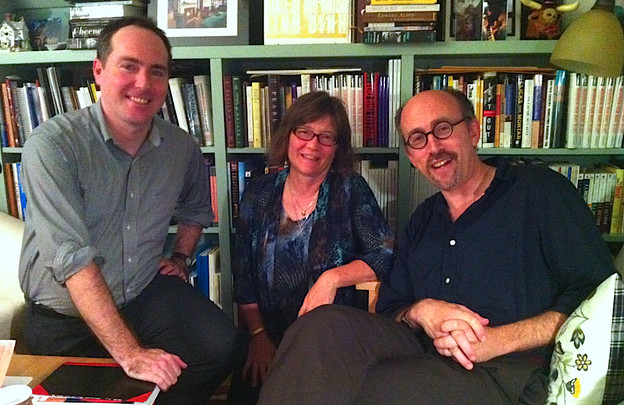On genocide and dementia

Over at the Tinfish Editor’s Blog, Susan Schultz takes time today to summarize her extended visit to the Kelly Writers House. Here is a link to the entire reflection. Here, below, is the first section of her piece, which I'm pleased to pass along for its insights into the question of possible relations between the way we think about genocide and the way we think about dementia. Sounds outlandish but it begins to make sense, in my view, when one approaches either as a problem of memory and witness.
[I’ve just returned from what I fondly called The Dementia Tour. The Kelly Writers House gigs had been planned for nearly a year; I’d thought going to Philadelphia would make it easier to visit my mother in Virginia. But as it happened, my reading at the Writers House included a farewell to the long project about my mother, which became, more importantly, a farewell to her. And so I gave a reading, did a public interview with Al Filreis, and recorded a PoemTalk with Al, Leonard Schwartz, and Tom Devaney on a poem, “Eating Fried Chicken,” by Linh Dinh. After going to see my Cardinals beat the Phillies (though Al and I only heard the game as it was ending on the car radio, streaming St. Louis announcers into the bowels of Philadelphia), and spending time with a college friend and a couple of UNO pals, I went on the West Virginia University to give a talk on Alzheimer’s writing, meet with grad students, and see old graduate school friends.]
That’s the inventory. But what actually happened?
Al Filreis began our conversation by noting that I have written about the Cambodian genocide, and he began to connect that content to the Alzheimer’s writing I’ve done that offers a testimony of witness to my mother’s decline. But we adopted our son from Cambodia! I told Al.
Our friend Hongly Khuy was a survivor of the Khmer Rouge. He’s come to several of my classes to talk about his experiences. He traumatized that first class of freshmen, talking about what it’s like nearly to starve to death, what it’s like to see a woman butchered to death for asking for more food (his laughter at the situation’s absurdity bothered the students most), how far one had to walk simply to get a few grains of rice. After a couple more such talks, he had grown much more gentle. He talked differently. Al distinguished between “deep memory” and “common memory.” Deep memory occurs in the present tense, always. Common memory acquires a past tense verb, assumes a distance between the moment of trauma and the moment of story-telling. It’s easier on the teller and his audience, but less “true” to the experience.
That didn’t diminish the force of Al’s intuition about genocide and dementia. If there are national dementias, imposed from above, then the Holocaust was one of them, enabled by forgetting on a massive scale. The comparison comes at a slant, not directly. Alzheimer’s is nature’s evil, not humanity’s. The disease is not ethical, though our reactions to it are. But the force of Al’s comparison hit hardest when I sat in on his Holocaust literature class and his students discussed Aharon Appelfeld’s Story of a Life, which I later read on my brand-spanking-new electronic device.
Much of Dementia Blog and what followed on this Tinfish Editor’s Blog happened not in “deep memory,” but in the “deep present” of confronting Alzheimer’s sufferers. Or it may be the “deep demented tense,” as it lives in an out-of-time that resembles the surreal in its reality. Appelfeld writes about stuttering. Do not tell the story because you cannot remember it, counsels the child who became the writer. Do not claim to master any language, because you have either lost those you spoke or failed to attain full command of the new language. A mother’s loss is likewise the loss of her language, which was German. Hebrew was an imposition, one he molded into a lifetime of work. A mother’s loss is the loss of her language into illness. I do not want to overplay the comparison (I spent years furious at Plath’s illness/Nazi metaphor), but reading Appelfeld’s memoir proved to be an amazing exercise in reading a poetics that works for Alzheimer’s writing, as well as Holocaust literature.